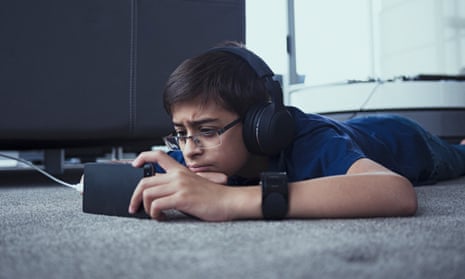At about the age of 10, I fell down a reading rabbit hole. I would like to tell you that the reason for this was that I was bookish beyond my years, but the truth is that there was nothing else to do. It was Sudan in the 90s. There was only one TV channel, which offered military parades and propaganda. Most of the time there was no electricity available to watch it anyway. I had no friends or relatives my age who lived nearby, and so to come home from school was to enter a black hole of inactivity. So I read anything I could get my hands on, escaping from what was in hindsight a sort of airless, inert unhappiness.
One day, as I was trying discreetly to read a book under the dinner table, my parents snapped. Unnerved by my addiction and how unsociable it made me, they banned me from reading at home and ordered that I collect all the books I had hoarded from the library and return them. I remember fishing them out of different nooks and crannies I had cultivated around the house and piling them up, with a growing terror of the impending boredom once they were gone.
I thought back to this traumatic moment during the latest outbreak of mass anxiety about children and “screen time”. Alarm bells always ring for me when a child’s leisure preoccupations are judged to be suspect. The latest bout of panic about screens has its source in a study by the journal EClinicalmedicine, which collated data from 11,000 children aged 14 taking part in the Millennium Cohort Study research project. The recommendation from doctors was that parents should cut social media use for children, as evidence suggests that it interferes with sleep and is linked to depression, particularly in young girls. Intuitively, this makes sense. The anxiety about screens is probably triggered because we adults are forced to spend more time than we would wish to looking at them, so we naturally fear for what it is doing to a child’s brain.
We’re all trying to get off our screens, taking hiatuses from social media and deleting accounts. Cafes (obnoxiously) advise us: “There is no wifi! Talk to each other!” There is even a growing cottage industry of literature on the topic. Books such as the hugely popular Ten Arguments for Deleting Your Social Media Accounts Right Now, How to Break Up With Your Phone, and You Are Not a Gadget warn us about all the ways connectivity is damaging us. Reports began to emerge last year of how Silicon Valley technologists are banning screens from their own homes. The New York Times says a “dark consensus” is beginning to emerge. An ex-Facebook employee told the paper that he is “convinced the devil lives in our phones and is wreaking havoc on our children”.
But in truth, there is no consensus, dark or otherwise. Even the University College London experts who led the study on screen time are reluctant to issue guidelines on where to set the threshold. Setting daily limits, they say, is “not the right focus”. Instead parents should be thinking: “Are you getting enough sleep, enough exercise, are you spending enough time with your family?”
All the hand-wringing also seems to miss another important dimension to the debate: limiting screen time assumes a certain degree of economic stability and social capital in the households that enforce the rules. For single parents who cannot afford childcare, for families isolated from friends or support networks, for children and adolescents caught in the middle of domestic dramas, and for women stifled by oppressive relationships or parents, screens are a boon. They are a window on to the outside world. A screen is not only a distraction: it is a rolling, cushioning conversation with the best friend of a teenage girl who has moved to a new country. Screens can liberate. They can, as books did for me, give blessed relief in a world where there is a poverty of leisure options.
My parents’ actions seem cruel when retold, but they saw my reading habits as an extreme diversion from what they considered normal. By that, I assume they meant communal family interaction and, in its absence, literally staring into space. This was how they grew up, with little literature and no electricity, counting stars to fall asleep. It should be a good and welcome thing that I had, and today’s children have, many other possibilities.
There is a whiff of elitist asceticism about the panic over screen time. Having acquired what was previously exclusive technology, now available to the masses, some people seem impelled to grandstand by forswearing it. But only those who are so fortunate that they can take or leave the utility of modern gadgets can afford to moralise. Yes, extreme screen fixation and social media addiction are troubling phenomena. But temper that with a thought for those for whom the devil isn’t living in our phones, but banished by them.

